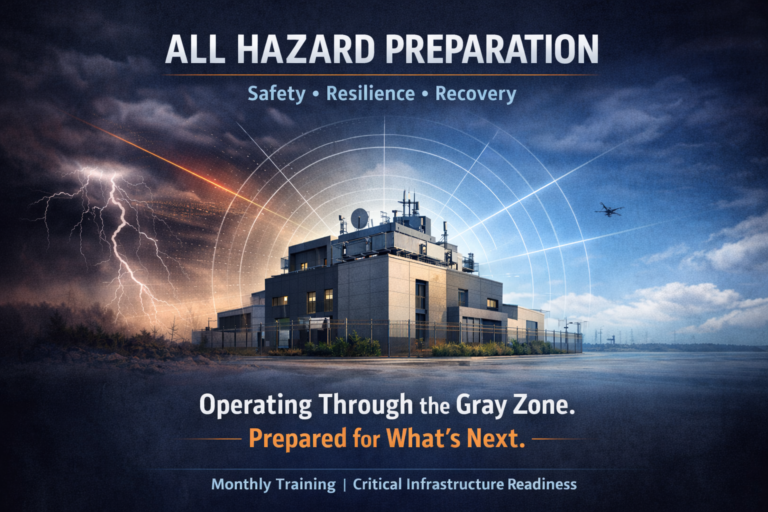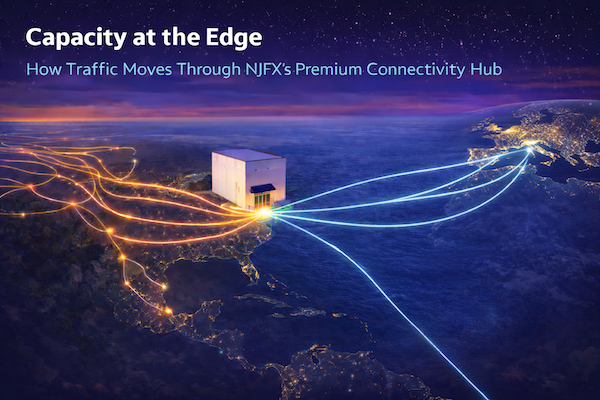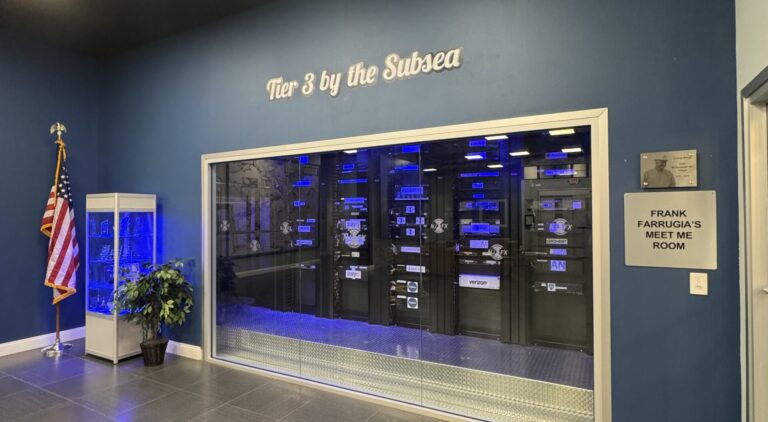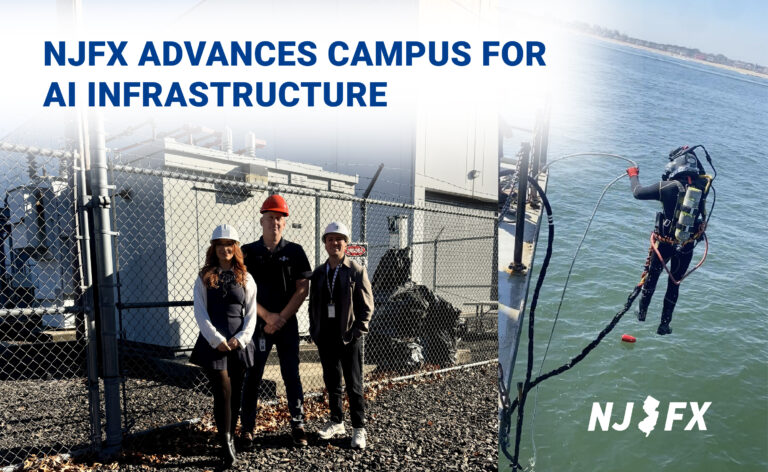AI, Power Prices Push New York Data Centers Down A Unique Path
The artificial intelligence-driven data center boom will hit New York eventually, but it will look very different from other major data center markets.

New York has yet to see the AI-driven explosion of data center development that has emerged in other top industry hubs, due in large part to the New York market’s high energy prices. AI will be a significant growth catalyst for data centers in New York, industry leaders said at Bisnow’s DICE: Northeast, July 18 at the Astor Ballroom in Manhattan, but that growth is likely to manifest differently than in any other primary market.
Rather than massive cloud and AI campuses that account for the bulk of the industry’s recent growth, they say New York will see increased demand for colocation facilities and data centers specializing in access to fiber networks that connect the market to AI infrastructure largely being built elsewhere.
“This market is doing really well for a lot of reasons that have nothing to do with power,” said Bob DeSantis, CEO of colocation provider 365 Data Centers. “New York just has so much volume. It’s expensive, but there’s already such a desire to have proximity that you add a little AI to that demand, and it overcomes any issues on the power side.”
The New York data center market, which includes New Jersey and Connecticut, is the seventh-largest data center hub in the U.S. As of the beginning of the year, the region had more than 700 megawatts of total data center inventory, the majority of it in New Jersey, and around 100 megawatts under construction, according to JLL. New York data centers have seen robust demand growth over the past two years, led by the financial services sector, with a growing share of leasing from major cloud providers.
While the fundamentals of the area’s AI landscape are strong, New York hasn’t had the kind of unprecedented inventory growth and development pipeline seen in other primary markets.
In Northern Virginia, Atlanta and Hillsboro, Oregon, data center inventory grew by 107%, 118% and 334%, respectively, between 2020 and the end of 2023, according to CBRE. It’s a record pace of growth that was first driven by surging demand for cloud services but has accelerated further as tech firms — led by Amazon, Microsoft, Google and Meta — engage in an AI arms race that is expected to surpass $1T in total infrastructure spending. Yet in the same time period, data center inventory in the New York Tri-State area grew by just 29%, the slowest pace among primary markets.
The reason the AI data center bump has seemingly skipped New York comes down to the price of power, executives said at DICE: Northeast. Energy costs have always been a top siting consideration in a sector where facility size is measured in megawatts rather than square feet, but AI has dramatically increased the amount of power used by the largest data centers and has subsequently made power pricing paramount for hyperscale developers.
Companies like Amazon and Microsoft are building their largest AI data centers anywhere they can find the cheapest power. Markets attracting major hyperscale investment like Atlanta, Dallas and Chicago had average power rates last year of less than 7 cents per kilowatt hour, according to JLL. New York, by contrast, was more than twice as expensive, with an average rate of 16 cents. New Jersey, which has the cheapest power in the Tri-State market, is still relatively expensive at 11 cents per kilowatt hour.
“The large deployments of AI are largely in areas where power costs are down and power is more readily available from utilities,” said Phillip Koblence, co-founder and chief operating officer of colocation firm NYI. “But the New York market, this is where a lot of the data that is being manipulated by AI is created because this is where the eyeballs are and this is where the internet is most evolved.”
Indeed, New York and the broader Northeast region is the country’s densest population center and therefore has the largest volume of consumers watching Netflix, interacting with ChatGPT and generating real-time data through phones, Apple Watches and other smart devices. Perhaps more importantly, the disproportionate number of financial institutions, major corporations and other large organizations that are based in New York represent an enormous amount of data that is only going to increase — along with its performance requirements — with AI adoption.

Much of this growing flood of data will be processed in cheaper power markets, but first it has to get there. This means more demand for carrier hotels and connectivity-focused colocation facilities, many of which have proprietary private networks that allow faster data transfer speed, known as latency, from New York to other major data center hubs.
Connectivity has always been a big part of New York’s digital infrastructure ecosystem, experts say, but it is primed for significant growth along with AI adoption.
“The AI boom is going to inherently benefit our market, but the driver of market growth here is going to be entirely based on connectivity to enable AI,” Koblence said. “All this AI and digital infrastructure growth is enabled by data being created in your pockets and on your rings and your watches and being transported to these large AI farms in places where the power is cheaper.”
Not all AI deployments will be located outside the New York market. Industry leaders expect AI adoption will boost demand for colocation facilities in the Tri-state area beyond what is expected elsewhere.
This is largely due to the outsized presence of financial services firms in the New York data center ecosystem, along with health care organizations like hospital systems and pharmaceutical companies and major educational and research institutions, said 365’s DeSantis. While many companies utilize public cloud from companies like Amazon Web Services for their AI infrastructure, these sectors have huge amounts of proprietary or private data for which the public cloud presents a security or compliance risk, pushing them toward colocation providers.
“There’s a lot of proprietary applications that those type of industries run, and there’s a lot of personal information,” DeSantis said. “Those aren’t cloud-first strategy types of data sets. Those are colocation types of data sets.”
Many of these colocation AI deployments for New York-based enterprises are going to New Jersey due to the lower power cost and other pricing advantages, and DICE panelists indicated they expect this trend to accelerate.
Digital Realty, Equinix, CoreSite and Iron Mountain plan to add a combined 145 megawatts in New Jersey by 2027, according to JLL. Other providers are building facilities in New York outside the city, such as DataBank’s development in Rockland County.
This enterprise demand for colocation capacity exists in the more expensive New York market largely due to the financial services sector, said Jeffrey Moerdler, a longtime data center and telecom attorney and a member at Mintz.
Financial firms are executing latency-sensitive trades and other transactions where hundredths of a second make a difference. Achieving this kind of low latency performance requires having the company’s computing infrastructure as close as possible.
“So much of the financial services industry, the brokerage industry and trading are in New York, and much of that data can’t be pushed out of the region and sent to Iowa,” Moerdler said. “It has to stay here and be processed regionally because of the latency problem.”
Latest News & Updates
Stay informed with the latest press releases, industry news, and more.








